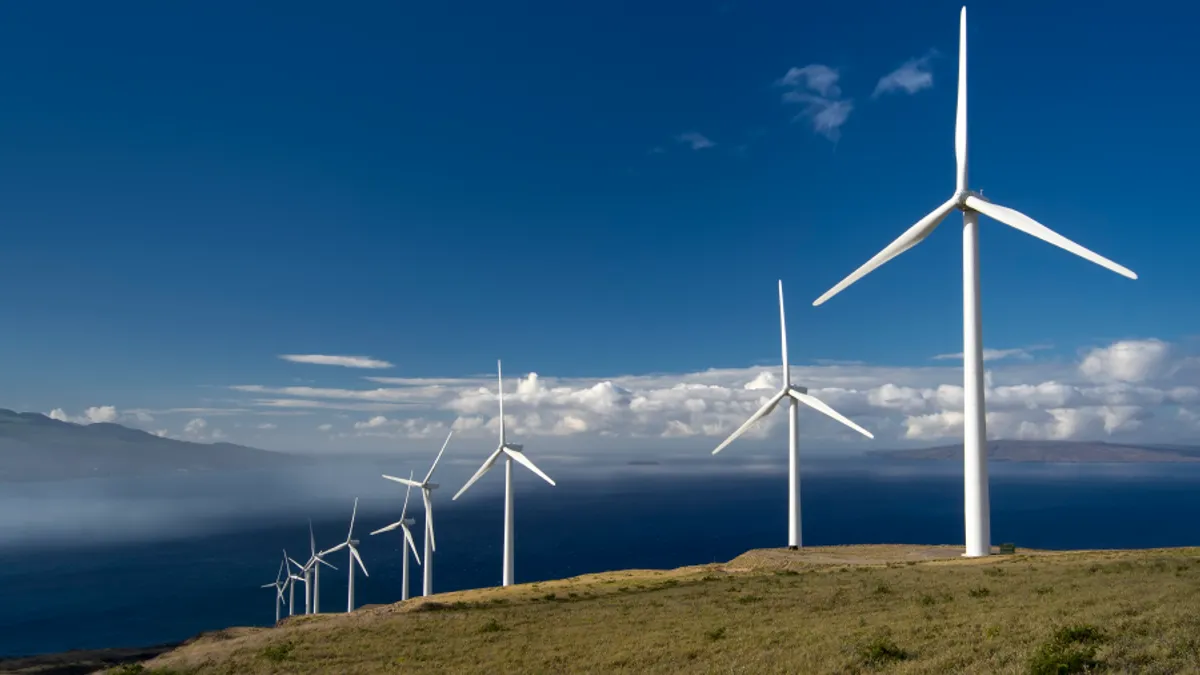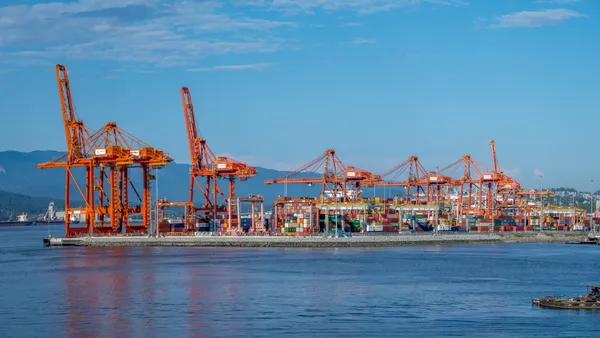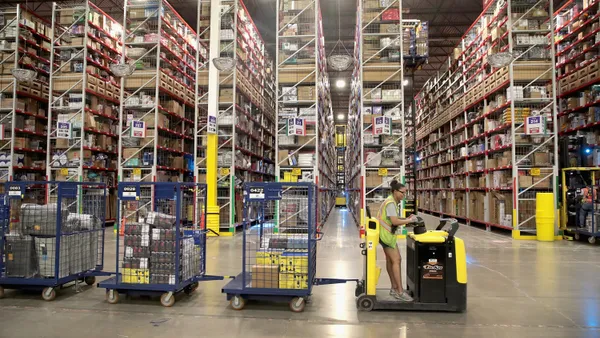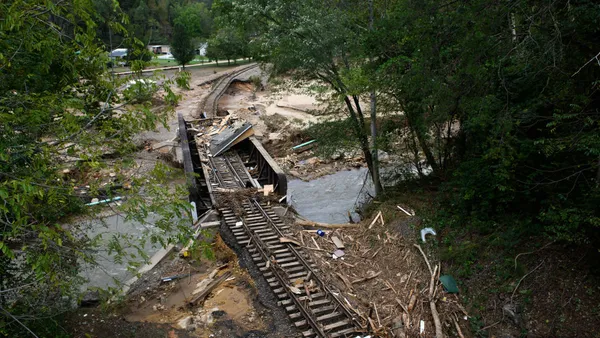Dive Brief:
- A coalition of major corporations including Walmart, Target, Kellogg, Dell, The LEGO Group and more than 100 others reduced the combined carbon emissions of their supply chains by 633 million tons of carbon dioxide and saved $19.3 billion for their companies in 2018, according to a new report from the Carbon Disclosure Project (CDP), provided to Supply Chain Dive.
- The 115 members, representing $3.3 trillion in procurement spending, made disclosure requests to 11,692 suppliers asking for information related to climate change, deforestation and water use, and the report is the product of 5,600 responses. 43% of members confirmed they ban existing suppliers based on environmental factors, and an additional 30% are considering this practice for the near future.
- "The lesson from a decade of the CDP Supply Chain program is that large public and private sector organizations really can lead effective change through using their substantial procurement spend as a powerful lever for action," CDP Chief Executive Officer Paul Simpson said in the report.
Dive Insight:
Modern businesses generally have primary carbon emissions five times smaller than their supply chains, according to CDP, so if massive corporate players want to truly reduce their environmental footprint, they have to extend their influence.
"There is power in procurement," CDP's report said. The 10-year-old organization operates on the understanding that asking suppliers for data around sustainability opens up a conversation that can lead to a reduction in key causes of negative environmental impact. In fact, suppliers that disclosed sustainability information reduced carbon emissions by 6% last year.
The report calls out Walmart, L'Oreal and fragrance giant Fermierich as examples of how sustainability commitments at the corporate level can "create a cascade" upstream.
But engaging with suppliers remains fairly uncommon. Of the 115 CDP members, upstream climate change engagement increased from just 23% in 2017 to 35% in 2018. The report said this level of engagement is insufficient and noted engagement on water and deforestation issues remains much lower.
Participation in CDP's program is increasing, but formal goal setting around climate change is still somewhat scarce among top corporations. Fewer than half of suppliers (47%) reported having a climate target, and just 35% had structured carbon reduction targets.
Still, Sonya Bhonsle, global head of supply chain at CDP, sees a change coming in the kind of pressure that moves supply chains toward sustainability.
One of the most powerful forces in encouraging sustainable business practices in the last several decades has been investor relations. If prominent investors have questions about water use or carbon emissions, corporations have to come up with answers.
CDP suggests concern from corporate buyers is becoming an even greater force for sustainability in supply chains — indicating that companies are moving toward sustainability without investor pressure.
"The number of companies reporting to purchasers about climate change, deforestation and water security over the past decade now exceeds the number reporting to investors," said Bhonsle in the report.















